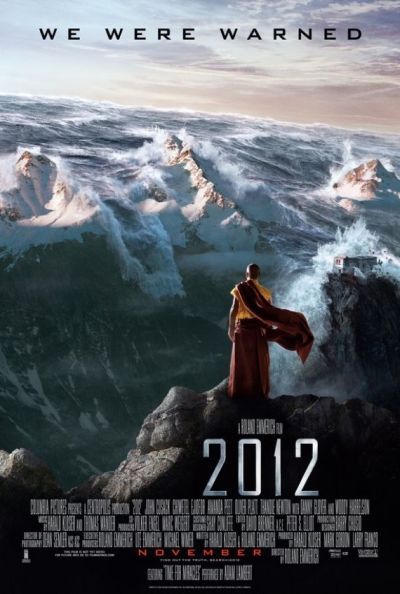Doomsday flick thrills audiences in 'saviour' China

Your support helps us to tell the story
From reproductive rights to climate change to Big Tech, The Independent is on the ground when the story is developing. Whether it's investigating the financials of Elon Musk's pro-Trump PAC or producing our latest documentary, 'The A Word', which shines a light on the American women fighting for reproductive rights, we know how important it is to parse out the facts from the messaging.
At such a critical moment in US history, we need reporters on the ground. Your donation allows us to keep sending journalists to speak to both sides of the story.
The Independent is trusted by Americans across the entire political spectrum. And unlike many other quality news outlets, we choose not to lock Americans out of our reporting and analysis with paywalls. We believe quality journalism should be available to everyone, paid for by those who can afford it.
Your support makes all the difference.Moviegoers in China have flocked to see the big-budget Hollywood disaster film "2012" in which their country saves part of mankind from the apocalypse.
Directed by Roland Emmerich - known for mega-action hits such as "Independence Day" and "The Day After Tomorrow" - the film has grossed more than 451 million yuan (66 million dollars) since its mid-November release.
That places it in the top spot on China's 2009 box office hit list, ahead of "Transformers 2" at 450 million yuan and the patriotic Chinese film "Founding of a Republic" at 416 million yuan, industry officials say.
In the film, which sees a host of geological and astrological catastrophes befall Earth on December 21, 2012, the Chinese build giant modern versions of Noah's Ark in the mountains of Tibet to save at least some of humanity.
The movie, which centres on an ancient Mayan prophecy that the world will end in 2012, has been summarised by many viewers in four simple words - "China Saves the World".
Some say the celluloid China-as-saviour theme has boosted ticket sales among a vast cross-section of the general public, fiercely proud of the country's mounting global diplomatic and economic clout in the real world.
"For sure, the 'China factor' has played an important part in the film's success," said Li Chow, Sony Pictures Releasing International's general manager for China.
"This 'China factor' fills the hearts of the Chinese with ease," noted Li Yu, of the Chinese Centre for Cinema Research.
"2012" smashes stereotypes beginning with the early 20th century evil genius Fu Manchu - first featured in a series of British novels but later used to inspire a host of criminal film characters.

Watch Apple TV+ free for 7 days
New subscribers only. £8.99/mo. after free trial. Plan auto-renews until cancelled

Watch Apple TV+ free for 7 days
New subscribers only. £8.99/mo. after free trial. Plan auto-renews until cancelled
In more recent years, China has been depicted as inherently corrupt - as in "Red Corner" starring Richard Gere as a US lawyer framed for murder - or repressive, as in "Kundun", a pro-Tibet account of the life of the Dalai Lama.
"2012 however depicts a positive China - the "Made in China" Noah's Ark-style boats are a symbol of the country's rising power in the manufacturing sector," according to Li Yu.
Other observers like John Solomon, the director of enoVate, a youth-focused strategy firm based in Shanghai, see the film as a possible catalyst for environmental activism amid dire predictions about the impact of global warming.
"Chinese youth can actually see the poor environmental conditions in their country and they are willing to take action to combat this. The film '2012' may represent the tipping point for youth to take sincere action," Solomon said.
Some say the change in attitude to China reflected in the film is just good business, with studios keen to woo hundreds of millions of Chinese viewers, even if only 20 foreign films hit Chinese screens each year.
But not everyone in the country is thrilled with "2012".
One actor, Hong Jiantao, trashed the film on his blog, saying it was traumatic for small children and describing the treatment of China in the film "in both the scenes and the dialogue, as hostile, even disdainful".
Some Internet users angrily noted that the Chinese workers mobilised to build the giant boats in the Himalayas were then prevented from boarding, but the film eventually offers them a happy ending.
Join our commenting forum
Join thought-provoking conversations, follow other Independent readers and see their replies
Comments